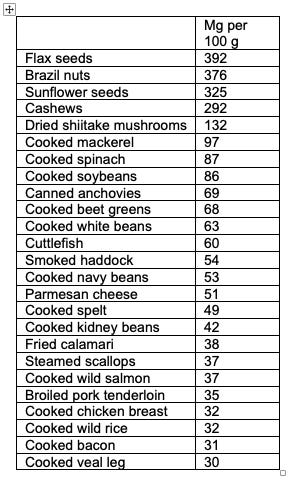How not to get dementia, next level: magnesium
It’s a crucial element, but chances are you don’t have enough.
Magnesium is a mineral usually associated with bones and muscle. Less celebrated is its involvement in brain health, and the consequences of inadequate daily amounts. In previous Substacks I’ve discussed the role of various nutrients that help prevent dementia: zinc, omega-3 fatty acids, vitamin K et al. Now, here’s another tool to add to your box.
Emerging evidence suggests that increasing your intake of magnesium may improve cognitive function and reduce the risk of developing Alzheimer’s disease. In men and women aged 40 to 73, magnesium has been shown to increase brain volume, especially hippocampal volume. The hippocampus is the region most associated with memory, the region you really don’t want to get much smaller.
“Accumulating evidence indicates that dementia-related diseases are associated with low magnesium levels, and dietary magnesium intake can improve cognitive function.”
Your body is quite unforgiving if you fail to give it a regular, daily supply of magnesium. That’s thanks to the efficiency of your kidneys, that when functioning well ensure that homeostasis is maintained and anything you don’t need is excreted. You won’t store any surplus. You’ll also lose some magnesium through sweat, and this amount rises with intensive exercise. Magnesium may also be pulled from bone to maintain serum levels, when low.
While “Most patients with dementia have decreased magnesium levels in several brain regions”, people without the condition have been shown to have high magnesium intake. And because it is essential for healthy neurological function, deficiency is also a risk factor for a range of other mental health disturbances: depression, epilepsy, hallucinations, stroke, and migraine.
The recommended daily amount (RDA) of magnesium is generally between 300 mg and 420 mg per day, with slight variations among countries. So first and foremost, ensure a regular dietary intake. That’s the simple part, and below are some of the top sources.
The role of magnesium in the brain makes it a major, modifiable player in dementia prevention. Here are four ways it protects your brain.
Keep reading with a 7-day free trial
Subscribe to Your Nutritionist Recommends to keep reading this post and get 7 days of free access to the full post archives.





